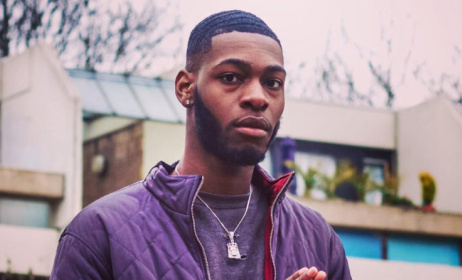Agency calls for relaxed visa requirements for Africans performing in UK
Clementine Bunel, an agent at the UK's Coda Musc Agency, has challenged the British government for its harsh visa laws, which she reports are negatively impacting the movement of African artists in the region.
 Zimbabwean band Mokoomba are among the African acts that have had challenges with the UK visa system.
Zimbabwean band Mokoomba are among the African acts that have had challenges with the UK visa system.
In an article featured in IQ magazine, Bunel said the visa processing fees required for African artists to perform in the UK are exorbitant and deplorable. Titled Keeping The Doors Open for African Music, the article addresses some of the challenges faced by African artists in acquiring travel permits to perform in the UK.
“I have been working with some great artists who have always required a visa to come play in the UK, sometimes at great expense – with the cost of a UK visa being £244 [$315] per person for the ‘cheap’ option,” Bunel wrote. “Artists from Mali, for example, cannot apply in their own country and instead have to fly to Senegal to submit their UK application. Their passports then have to be sent to Sheffield in the UK for processing, which can take up to four weeks.
“They then they have to wait, anxiously, hoping that their visas are ready in time for them to travel. To the cost of the visa itself, you can add the expense of travelling back and forth and potential accommodation costs. If they are applying for an extended visa to cover a longer period, they will also have to pay for NHS fees and tests for tuberculosis, if applicable. It all adds up,” she wrote.
Bunel said the process of getting a UK visa was costsly, time-consuming and nerve-wracking.
“But the ambition to conquer the UK prevails and a lot of bands do invest, sacrificing their fees sometimes just to get to the UK,” said Brunel. “As an agent representing African artists, I spend a lot of my time handling visa-related issues.
“It’s getting more stressful, but if this is what we have to do to ensure we welcome these artists to the UK and Europe in order to bring diversity into the musical landscape and to festival bills, then I will continue to do so with pride.”
Bunel said she felt aggrieved by music industry professionals who only raise their eyebrows in situations that adversely affect big countries.
“I am equally angry to see that it takes a situation that directly impacts US artists for the industry to stand up and make some noise and finally admit how bad the situation is. Artists from Africa who are booked to play UK festivals are here to perform, so why would their presence not be as important as US artists?”
She went on to add: “[African artists] can also sell tickets, get radio playlists and gather impressive streams. They also have stories to tell and all that matters, like Malian band Songhoy Blues, who fought for their right to sing when Islamic jihadists banned music, and gay South African artist Nakhane, who – having embraced his sexuality – had to leave his country to find safety.
“Not your average indie band, right?” she questioned.
Bunel challenged the media for turning a blind eye on success stories that emerge from Africa.
“While we get fed stories from the news painting Africa as a continent that 'needs help', how about getting the real stories about contemporary Africa that have something to say and do something about it. This is something Coda Agency has supported me with since I joined,” she said. “This is where our industry has to do better. Since Brexit [the British withdrawal from the European Union] was announced, I have seen more hunger from within the media and creatives to champion and support music that is not from the US or the UK.
“A door has opened but, unfortunately, to quote a recent tweet from Jon Snow, the Home Office is making it a ‘hostile environment’ for touring musicians who do not hold a passport that doesn’t require them to apply for a UK visa. Price increases and processing times are getting to the point where some bands will refuse to play a UK festival or accept a UK tour just because of the sometimes humiliating process of applying for a visa. That directly impacted a number of festivals this summer – and it will continue to do so if we do not react to this nonsense that is making the UK close its doors to diversity.”
Effect of Brexit on touring African artists
Bunel argued that the withdrawal of Britain from the European Union will further hinder the movement of artists to the UK.
“As a European living in London for more than ten years, Brexit has thrown a little shade on what my future looks like here, and, like many others, I am anxiously waiting for it to unfold,” she said. “But I feel fortunate that I currently live here, work here and have freedom of movement.
“One of the talking points in the music industry and one of the unforeseen consequences of Brexit is how it will affect non-European artists who start their tour in the Republic Ireland before heading to the UK. It will, theoretically, no longer be possible for artists to do so without applying for a UK visa. I am angry that there is now another obstacle to enter the UK, and it is once again to the detriment of the arts. But this is a much wider issue, and not only about Brexit, which is only the tip of the iceberg here.”



































Comments
Log in or register to post comments